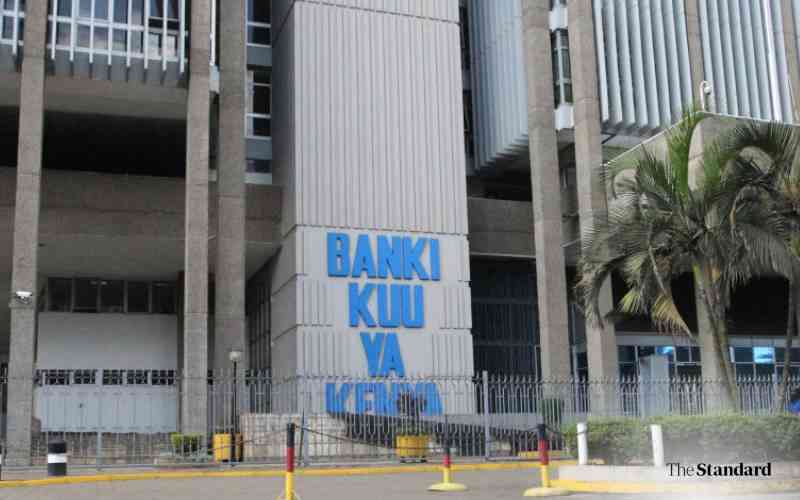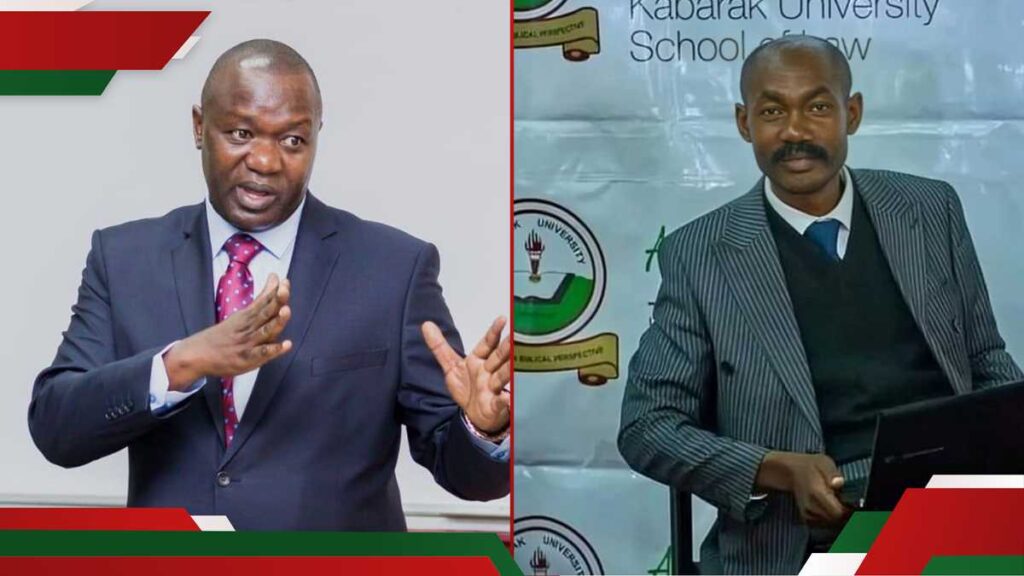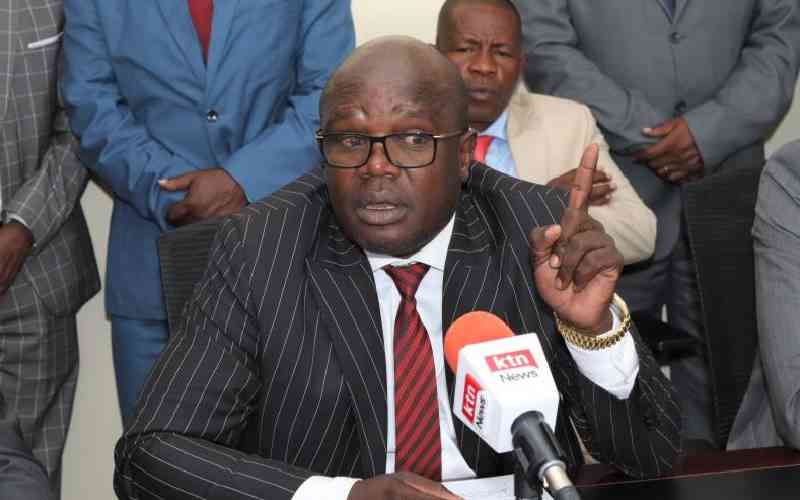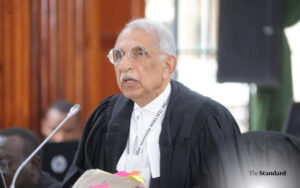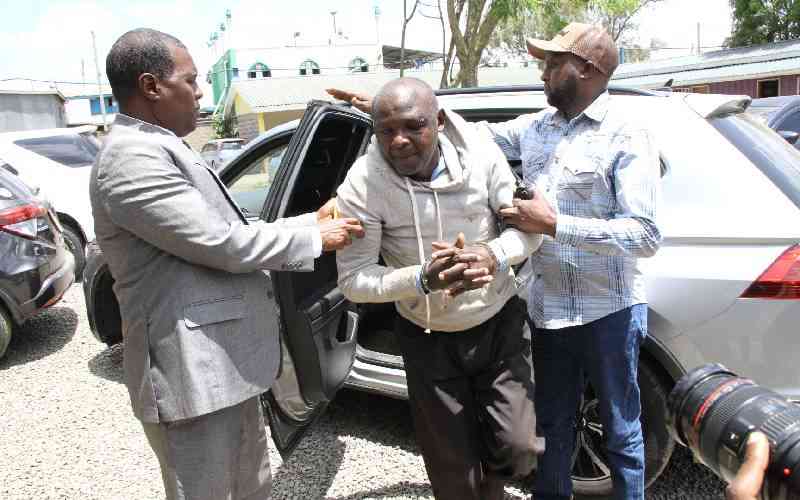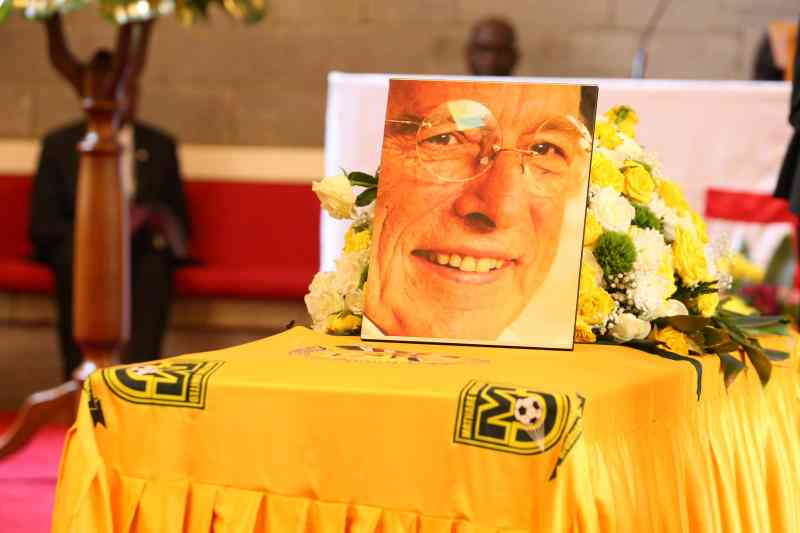The Supreme Court has declined to allow an application by Stanbic Bank Kenya Limited seeking to give authority to the Central Bank of Kenya (CBK) Governor to dictate the banking rates.
The apex court ruled that National Treasury Cabinet Secretary has the residual authority to restrict the increase in banking rates.
Justices Martha Koome, Philomena Mwilu, Mohamed Ibrahim, Smokin Wanjala, Njoki Ndung’u, Issac Lenaola and William Ouko said that the CS can only donate his authority but not responsibility.
The judges said that the CS Treasury can retain the residual authority to vary or cancel a delegation as explained in Section 38(4) of the Interpretation and General Provisions Act.
“The invitation to review the judgment on the basis of legal notice No 35 in which the CS has delegated his powers under Section 44 of the Act to the Governor of CBK cannot prevail against an express statutory provision which assigns the responsibility or authority of restricting the increase in banking rates to the Cabinet Secretary,” said Koome.
On June 28, 2024, the Apex court ruled that interest rates on loans and facilities advanced by financial institutions are subject to the regulatory process under Section 44 of the Banking Act.
In addition, the judges said that such financial institutions are required to seek the CS’s approval under Section 44 of the Banking Act prior to increasing interest rates on loans and facilities advanced to its customers.
Wrong provision
The Apex court said that Stanbic Bank Kenya Limited (applicant) not only moved the court under the wrong provision but also failed to bring its application within the statutory required period of 14 days.
“There is, therefore, no suggestion that our judgment under review was obtained through fraud, deceit or misrepresentation of facts or that the Court was misled into giving it or that it was rendered on the basis of repealed law or as a result of a deliberate concealment of a statutory provision,” said Justice Koome.
In their application for review, the bank said the apex court declaration nullifies the prevailing legal regime under which the power of the CS has been delegated to the Governor of CBK.
The bank’s Head of Legal, Janet Kabiru, said the decision also nullifies all the approvals made by the Governor of CBK, which approvals were within the purview of the law as it currently exists.
Kabiru said that their bank and financial institutions will be subjected to a litany of litigation from borrowers on the basis that the rates were varied without appropriate ministerial authority.
She said there was an oversight by finding that banks or other financial institutions are required to seek the CS’s approval under Section 44 of the Banking Act
Stay informed. Subscribe to our newsletter
Kabiru said that Santowels Limited (Respondent) has not produced any evidence to support the contention that the Governor of CBK has conferred upon himself duties beyond those specified under Legal Notice No 35.
Delegated powers
She said that by legal notice No 34 of 2006 issued pursuant to the Act, the former Minister of Finance Amos Kimunya promulgated the increase of rate of banking and other charges regulations requiring that every application for approval of an increase in the rate of banking under Section 44 be submitted to the Minister through the Governor CBK.
She said that through legal notice No 35, CBK became the primary authority through which the rate of banking, other charges, or tariffs are regulated, with the Governor of CBK exercising delegated powers and authority of the Minister of Finance.
She said Legal Notice No 35 and the regulations are in conformity with Article 231(2) of the Constitution which provides that CBK is responsible for inter alia, formulating monetary policy, promoting price stability and issuing currency.
Kabiru said that by Article 231(3) of the Constitution, CBK shall not be under the direction or control of any person or authority in the exercise of its powers and functions thereby entrenching independence.
She said the Governor of CBK’s authority under Section 44 of the Act cannot be exercised jointly by the CS nor can they be exercised by the CS alone.
However, Santowels said that Section 44 of the Act is not a function specifically donated by the Constitution to the CBK neither has Parliament conferred it and therefore does not come under the provisions of Article 231(3) of the Constitution.
Santowels Director Rajiv Raja that the person delegating must remain fully accountable for the outcome of the delegated work and that one can delegate authority but not responsibility.
Raja said that circulars number 3 and 5 were made ultra vires the provisions of Section 44 for the reason that at the time the said circulars were being issued, the Governor of CBK did not have authority to issue those circulars.
He said that pursuant to Legal Notice No. 35, for the first time, the CS delegated the functions under Section 44 to the holder of the officer of the Governor CBK and not to the CBK as provided for under Article 232 of the Constitution.
Raja said the primary function of issuing approvals remained with the minister but exercised on his behalf by the Governor of CBK.
On June 17, 2003, CBK issued Banking Circular No. 03 of No. 03 of 2003 directing all institutions under the Act to submit to the Minister, through CBK, the list of all current and other banking charges.
Also it issued Banking Circular No 5 of 2003, guiding licensed institutions under Section 44 of the Act requiring them to communicate all changes in the rate of banking and other charges to their customers at least 30 calendar days before such changes become effective.








